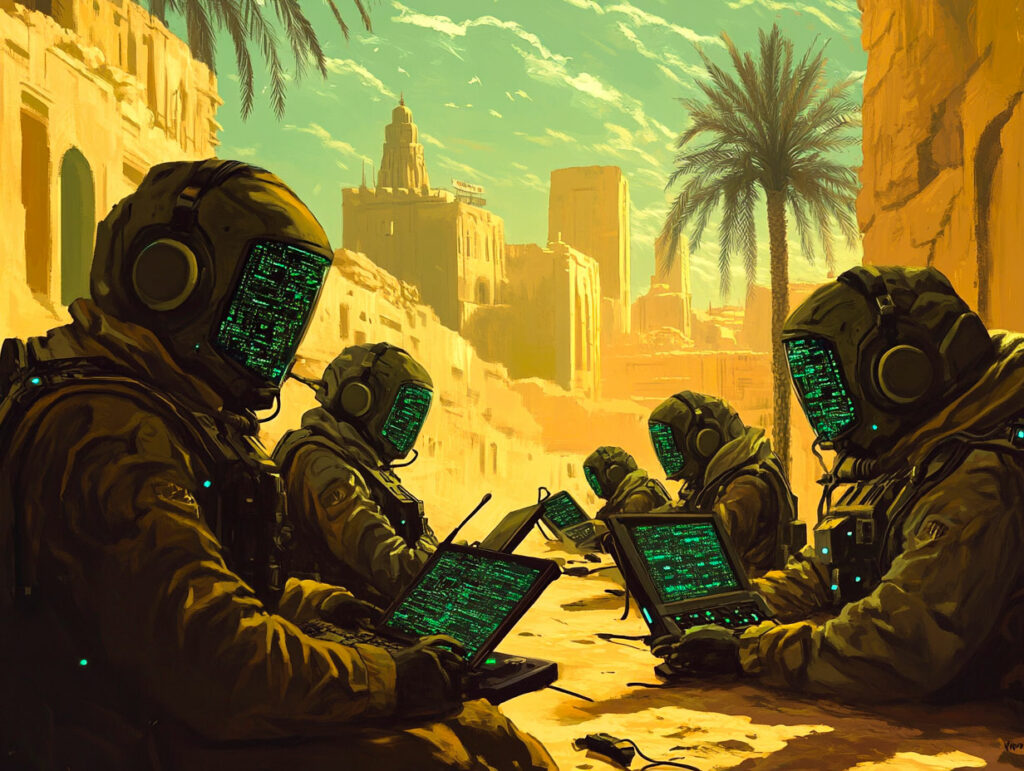
Technical analysis of cyberwarfare strategies between Israel and Iran, highlighting influence operations and computer attacks.
The Middle East is the scene of intense cyberwarfare, mainly between Israel and Iran. Israel, a pioneer in cybersecurity, conducts sophisticated offensive and defensive operations, such as the development of the Stuxnet virus. Iran, for its part, retaliates with denial of service attacks and disinformation campaigns. This digital war also extends to the manipulation of information, with propaganda campaigns aimed at influencing public opinion. The consequences of these virtual confrontations are manifold, affecting regional stability and posing challenges to international security.

The rise of cyberwar in the Middle East
The Middle East has become a digital battlefield, where states use technology to conduct offensive and defensive operations. Israel, recognized for its expertise in cybersecurity, has developed notable offensive capabilities, notably with the Stuxnet virus, which targeted Iranian nuclear facilities in 2010. This malicious software disrupted the operation of Iranian centrifuges, thus delaying their nuclear program. In response, Iran has strengthened its cybernetic capabilities, launching denial of service attacks against Israeli and Western infrastructures. These digital confrontations have repercussions on regional stability, increasing tensions and complicating diplomatic relations.
Strategies of influence and disinformation
Beyond computer attacks, information warfare is a major strategic tool. Israel uses communication campaigns to influence public opinion, mobilizing Arabic-speaking citizens to counter anti-Israeli propaganda on social networks. Arabic websites are also created to spread pro-Israeli messages or to sow discord among opponents. Iran, for its part, is conducting disinformation campaigns aimed at discrediting Israel and strengthening its influence in the region. These influence strategies have a significant impact on the perception of conflicts and on the mobilization of public opinion.
The consequences for regional security
The cyberwar between Israel and Iran has profound implications for regional security. Cyber attacks can disrupt critical infrastructures, such as electrical grids or communication systems, thus affecting the daily lives of populations. In addition, the manipulation of information can exacerbate ethnic and religious tensions, fueling conflicts and making it more difficult to resolve disputes peacefully. The proliferation of cyber capabilities in the region also poses challenges for non-proliferation and arms control.

The challenges of regulation and international cooperation
Faced with the rise of cyberwarfare, the international community is confronted with challenges in terms of regulation and cooperation. The absence of clear legal standards on the use of force in cyberspace complicates the response to attacks and the accountability of the actors. Furthermore, the transnational nature of cyberattacks requires enhanced international cooperation to share information, coordinate responses and develop prevention mechanisms. However, political differences and national interests make this cooperation difficult to implement.
Future prospects and recommendations
Several measures can be considered to address the growing threat of cyberwarfare. States must strengthen their cybersecurity capabilities by investing in training and research and development of defense technologies. The establishment of international standards on the use of cyberspace is also essential to establish clear rules of the game and prevent escalation. Finally, the promotion of transparency and accountability in cyber operations can help build trust between actors and reduce the risk of conflict.
War Wings Daily is an independant magazine.